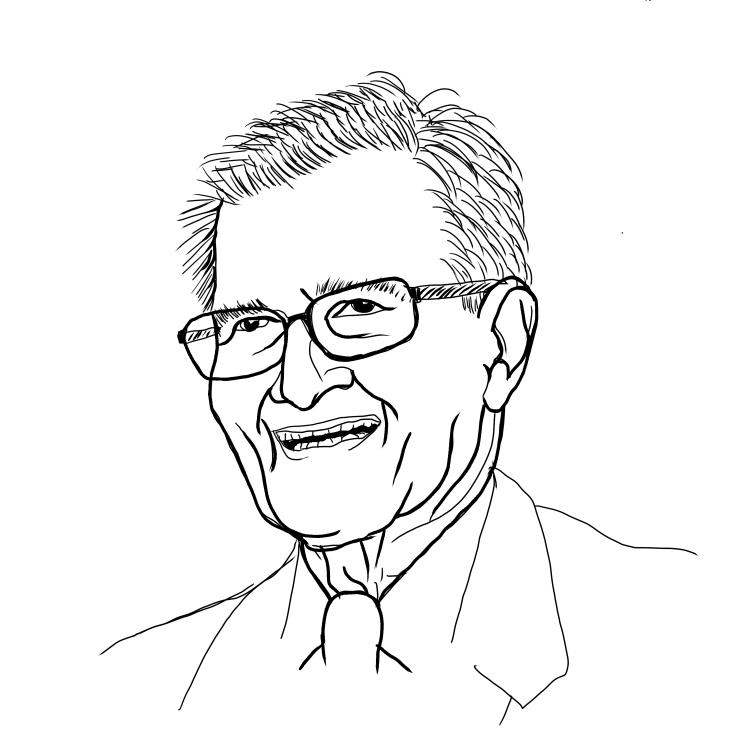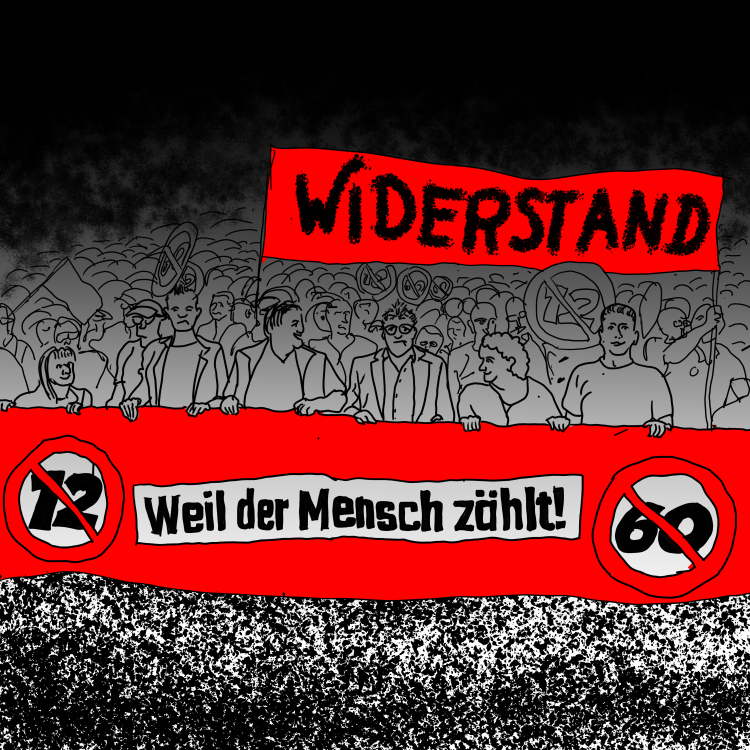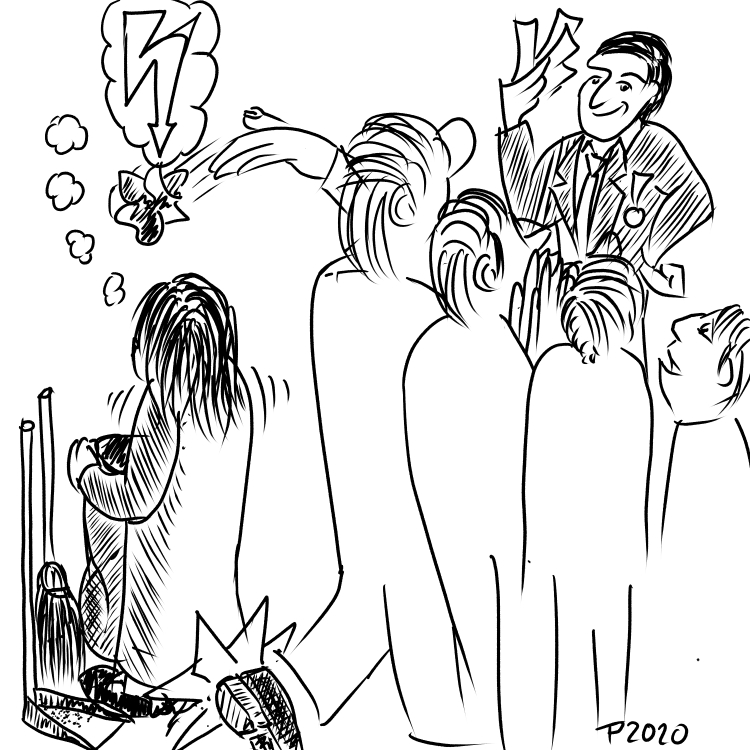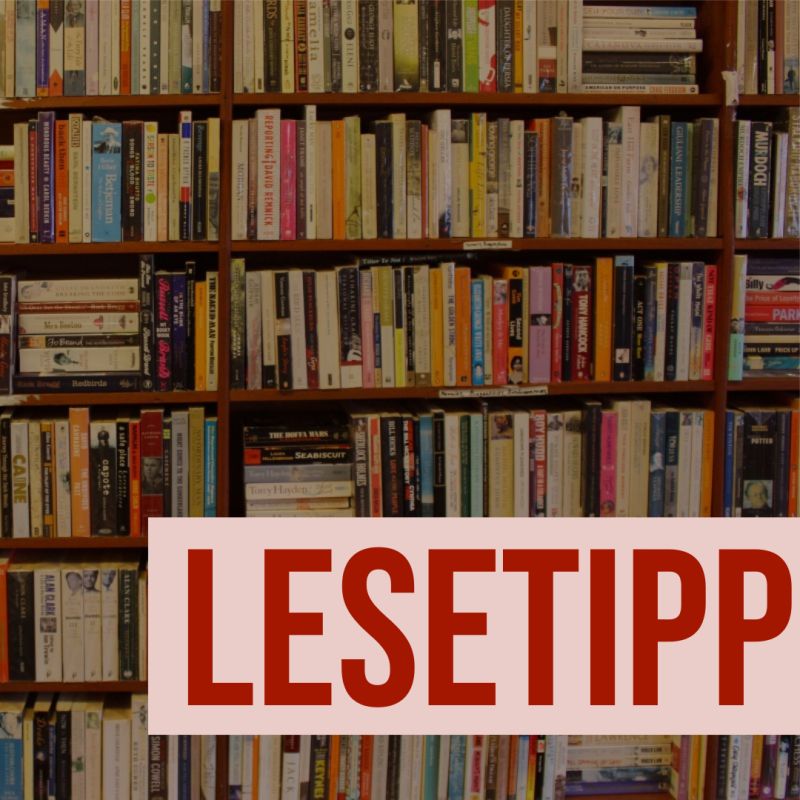„It is not the realisation that justice in the world is imperfect – perfect justice is something few of us expect – that drives us to action, but the fact that there are injustices in our environment that can be addressed and that we want to end.“
(Amartya Sen, The Idea of Justice)
Injustice ≠ Resistance
„They put up with it all because they are still too well off!“ An everyday psychological diagnosis we have all heard quite often. The current article puts the focus on the people who are supposed to support our counter power strategy.
Seen through our trade union lens, there are injustices without end, socially and in the workplace. Why are we so often confronted with limited resistance? Constructively asked: What are the drivers, the motivators that make people develop resistance in the first place?
Enduring injustice or fighting injustice?
Barrington Moore, in a major historical study, has explored the question of „why people so often resign themselves to being victims of their social circumstances, and why at other times they become exceedingly angry and seek to change their situation with passion and violence.“ Axel Honneth also explores a similar question in his book „Struggle for Recognition“. Both investigations are very helpful with regard to the implementation of an educational goal of „resistance“.
„Struggle for recognition“, „disregard“, „indignation“, „moral anger“
Humans are social beings. We emerge from relationship, we grow and develop in dependence, we are socialised in interaction with our fellow human beings, we learn and we „form“ our personality through irritation and confrontation in relation to our environment. Our „identity“ is social, always in relation/resonance to our fellow world (cf. Joachim Bauer and Hartmut Rosa). Every human being is therefore caught between a self-determined life and participation in the community. All those who are involved with growing children know the emotional struggle „between self-assertion and recognition“. (Schäffter)
According to Honneth, a stable social structure, „sociality,“ is created through three forms of recognition: love, respect and social esteem. Sufficiently present in reciprocity, these factors hold human communities together. And people develop something like a moral order of what can be expected in terms of mutual recognition, what is okay and what is not in dealing with each other; put simply, „what they and others may expect from life.“ The opposite of recognition is reflected in experiences of disrespect, physical assault, disenfranchisement, attack on people’s self-esteem.
The resistance flow: experience of disregard – negative feelings – awareness of injustice – potential for resistance
For Moore, indignation and subsequently resistance arise from people feeling that the „unwritten social contract“ of the expected moral behaviour towards each other – at this time and in this place – is being violated. This gives rise to negative feelings, moral anger and, in turn, the impulse to want to change injustice.
„All human problems have social connotations.“ (Tom Kehrbaum)
Axel Honneth develops this consideration further. He says that mutual recognition, which is rooted in the social nature of human beings, is the crux of the matter. If this is violated through disrespect, assault, attack on self-respect or disenfranchisement, feelings such as anger or indignation arise. For us humans, these negative feelings are indications of a state of injustice. Only this emotionally incited awareness of injustice can provide an impetus for social resistance and a willingness to engage in conflict (Solinas). Especially when, firstly, there is a real chance of improved life chances and, secondly, one’s own life perspective suffers because this is prevented by interest groups or structures. Both spur the fighting spirit.
But there is no automatic mechanism for this! Experiences of disregard can also lead to the opposite dynamic: Disregard – social shame – depression – subordination – self-sacrifice and even self-destruction. This is not what we want to deal with here though.
The educational goal of resistance
To begin with: the trade union seminar room is not there to instil knowledge into the heads of others, but to reflect on social and workplace conditions and to promote a social bond for the goals of social change! To do this, our educational offers must provide a double literacy:
- Firstly, with regard to our „value-ideas„: Freedom, equality, solidarity, social justice, social security etc. Historical struggles – well told – linked to people and faces; small group discussions on the concepts; everyday stories that embody these values are possible approaches. Only if our participants also feel part of our community of values will they recognise and feel the disregard – of our visions of a just society – by the opponent of interest as such.
- Secondly, cultivating awareness of injustice is a major methodological challenge. Telling people all the things the union wants to achieve or thinks are unjust does not work. We have to methodically – by means of a critical analysis of the conditions – dive into the microcosm of the injustices experienced directly, individually and collectively. These must be linked to the emotions of those involved and their hopes for change. This sounds abstract, but it does not have to remain so.
The AHA pattern (Anger-Hope-Action) in 1:1 conversations from organising is such a model. The approach to injustice in the workplace is done through so-called „broad“ and „deep“ questions, which also help to work out the anger about the injustice. People are almost always able to formulate what an improvement could look like in specific terms and thus give shape to their hope. They can then also name individually measured possibilities for action.
In-depth problem analyses on very specific workplace grievances should also address the violation of workplace values (look at the mission statement). When promoting resistance, there must always be a „human rights“ theme (Uli Wohland). Something where everyone on the street says, „that’s not right!“ and is outraged by it. We have to charge the persuasive power of our justified demands with such emotions. You can practise this in the seminar room!
Documents for download
For further reading
- Bauer, Joachim: Wie wir werden, wer wir sind. Die Entstehung des menschlichen Selbst durch Resonanz.
- Fuchs, Max: Widerständigkeit als Bildungsziel – Ein zentrales Element einer selbstbestimmten Lebensführung,
- Hessel, Stéphane: Empört Euch! Berlin, 2011
- Honneth, Axel: Kampf um Anerkennung. Zur Grammatik sozialer Konflikte, Frankfurt 1992
- Honneth, Axel: Theorie der Anerkennung als kritische Theorie der Gesellschaft – Ein Interview Teil 1
- Moore, Barrington: Ungerechtigkeit. Die sozialen Ursachen von Unterordnung und Widerstand, Frankfurt 1987
- Knapp, Natalie: Der Stoff aus dem Helden sind, Zeit Nr. 10/2013
- Pape, Helmut/Kehrbaum, Tom: John Dewey. Über Bildung, Gewerkschaften und die demokratische Lebensform, HBS Study Nr. 421 (Juni 2019)
- Rosa, Hartmut: Resonanz. Eine Soziologie der Weltbeziehung, Berlin, 72017
- Solinas Marco: Emotionen als Motivationsbasis der Sozialkämpfe. Über Axel Honneth und Barrington Moore Jr., in: Zeitschrift für philosophische Forschung, Band 72 (2018);
- Schäffter Ottfried: Die Theorie der Anerkennung – ihre Bedeutung für pädagogische Professionalität. In: Annette Mörchen, Markus Tolksdorf (Hrsg.): Lernort Gemeinde. Ein neues Format der Erwachsenenbildung. EB Buch 29, Bielefeld, 2009 S.171-182;
- Stern, Sandra/Gerstmayer, Wolfgang/Gstöttner-Hofer, Gerhard/Schneeweiß, Christian/Windtner, Martin: Organizing mit BetriebsrätInnen, Wien 2020;
- Welzer Harald: Selber Denken – eine Anleitung zum Widerstand, Frankfurt 2013
The above-mentioned books (and others) can be ordered free of charge from the ÖGB-Verlag webshop HERE.
Author: Gerhard Gstöttner-Hofer
Lust auf mehr Theorie? Zu allen Beiträgen der Serie kommst du HIER!

Dieses Werk ist lizenziert unter einer Creative Commons Namensnennung-NichtKommerziell-Weitergabe unter gleichen Bedingungen unter gleichen Bedingungen 3.0 Österreich Lizenz.
Volltext der Lizenz

Dieses Werk ist lizenziert unter einer Creative Commons Namensnennung-NichtKommerziell-Weitergabe unter gleichen Bedingungen unter gleichen Bedingungen 3.0 Österreich Lizenz.
Volltext der Lizenz





